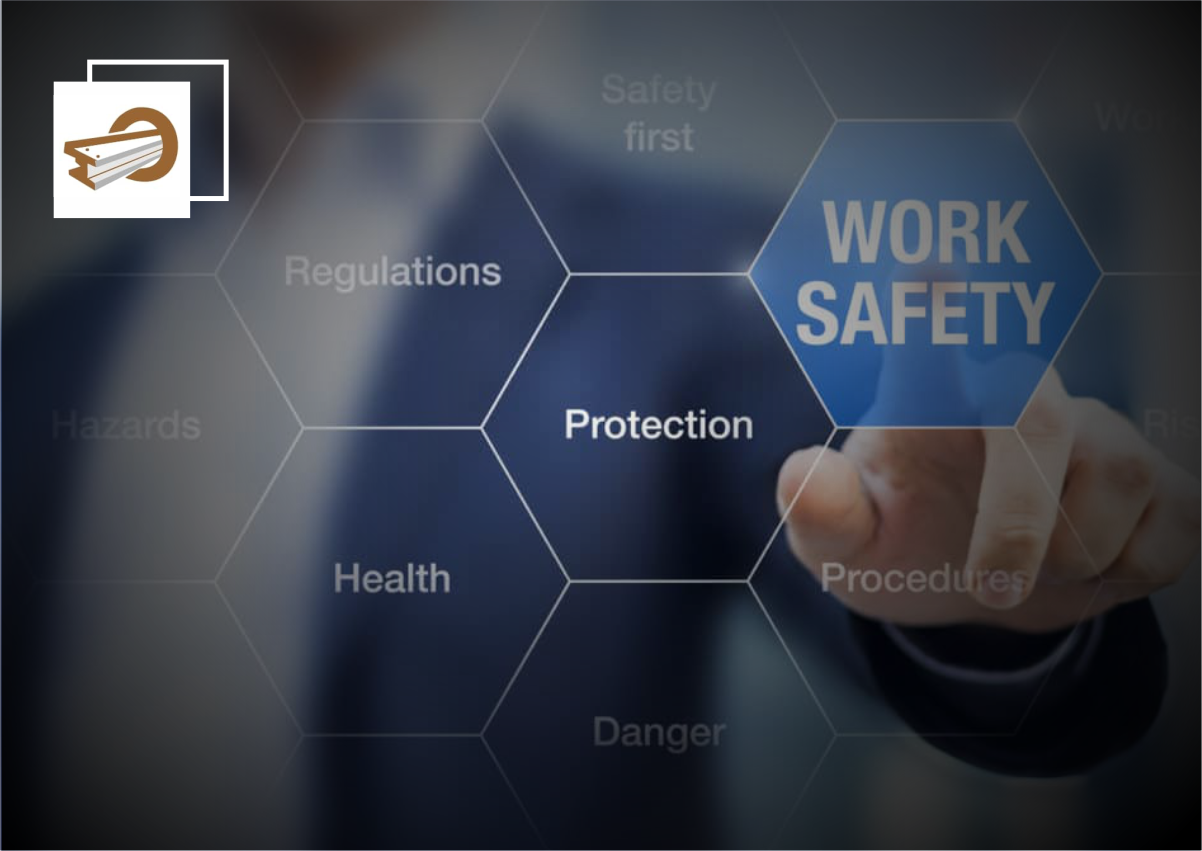
Safety is extremely important in metal shops to ensure the well-being of metal fabrication workers and create a secure working environment. One crucial aspect of maintaining safety is using personal protective equipment (PPE) correctly.
In addition to using PPE, it is essential to provide comprehensive training, ensure machinery safety, maintain proper ventilation, handle materials correctly, practice chemical safety, keep the workplace clean, prioritize electrical safety, have fire safety measures in place, and be prepared with first aid.
Following these safety measures can protect workers and promote a culture of safety in metal shop environments. At Jersola Engineering, we prioritize safety protocols as they affect all aspects of our business.
Here are some safety tips that every metal fabricator should remember:
1. Use Personal Protective Equipment properly.
Industrial employers should provide workers with PPE that complies with OSHA regulations. These protective wearables safeguard employees from injuries caused by machine malfunctions, flying debris, poor air quality, and other hazards.
Examples of PPE include safety glasses, gloves, steel-toed boots, and hard hats. Wearing PPE can make a significant difference in preventing injuries and avoiding trips to the emergency room.
2. Training
Safety training is an essential part of preventing injuries in a metal shop. This includes teaching workers how to use machinery correctly, educating them about potential hazards, and ensuring they use personal protective equipment (PPE) effectively.
3. Machinery Safety
Never operate machinery without wearing the appropriate PPE. Additionally, workers must make sure that machines are well-maintained.
4. Proper Ventilation
Working with metals often involves processes that release harmful fumes or dust. It is important to have proper ventilation in work-spaces to reduce these risks.
5. Material Handling
Metal fabrication often requires heavy lifting. It is crucial to use proper lifting techniques and mechanical lifting aids when necessary to avoid injuries.
6. Chemical Safety
If you work with chemicals, it is important to follow all safety procedures, including proper storage, usage, and disposal.
7. Housekeeping
Workers should keep their workspaces clean and tidy to prevent slips, trips, and falls. This includes keeping walkways clear and promptly cleaning up spills.
8. Electrical Safety
Metal fabrication often involves working with electrical equipment. Always follow electrical safety procedures to avoid the risk of electric shock.
9. Fire Safety
Cutting and welding operations can cause fires. Always have the appropriate fire extinguishing equipment nearby and know how to use it.
10. First Aid
Make sure to have a fully stocked first aid kit readily available, and ensure that workers know how to use it. In case of an injury, it is important to be able to provide immediate care until professional help arrives.
11. The Consequences of Poor Safety Practices
Poor safety practices in a metal shop can have significant consequences for both workers and the business. These consequences go beyond the immediate risks of accidents and injuries and can have long-lasting effects. Here are some potential repercussions:
Worker’s Compensation Claims
Poor safety practices increase the likelihood of accidents and injuries that result in workers’ compensation claims. These claims can lead to higher insurance premiums and legal expenses for the business.
Lost Productivity
Accidents and injuries due to poor safety practices can disrupt work and decrease productivity. When workers are injured, they may need time off for medical treatment and recovery, resulting in reduced staffing levels and production delays. Staff shortages can cause missed deadlines, increased project costs, and loss of new business opportunities.
Damage to Business Reputation
Poor safety practices harm a business’s reputation and credibility. News tends to spread about unsafe working conditions and frequent accidents. A bad reputation may discourage new clients and partners, resulting in lost contracts, decreased sales, and difficulty attracting and retaining workers.
Legal Repercussions
Failure to comply with safety regulations can lead to legal consequences, such as failed OSHA inspections. Failed inspections result in penalties, fines, and lawsuits.
Employee Morale and Turnover
Poor safety practices have a negative impact on employee morale and job satisfaction. When workers feel unsafe or witness accidents, their trust in the business and management is eroded. This leads to increased employee turnover, as workers may seek employment in safer environments. High turnover rates can result in additional costs for recruitment, training, and reduced productivity.
What About Insurance?
Insurance providers may increase premiums or even refuse coverage if a metal shop demonstrates poor safety practices. This can significantly affect the business’s operating expenses and financial stability.
To mitigate these consequences, metal shops should prioritize safety by implementing comprehensive safety protocols, providing regular training to employees, maintaining proper safety equipment, conducting routine inspections, and promptly addressing hazards.
Conclusion
Both you and your project deserve a skilled metal fabricator who has the necessary qualifications and prioritizes safety. Jersola Engineering and Construction is a full-service metal fabrication company that is dedicated to meeting these requirements.
If you need more information about our metal fabrication services, we would be happy to hear from you and discuss your manufacturing needs. With over 30 years of experience in comprehensive metal fabrication, we are confident in our ability to meet your expectations.
SOURCE: LinkedIn
